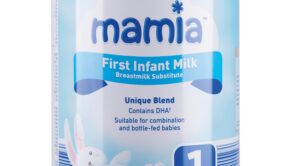The border effect

The effect of the UK VAT increase on the Irish grocery sector is thought to be positive but will it really have that significant an effect on border retailers?
13 July 2010
When the new British Chancellor George Osborne raised the UK VAT rate from 17.5% to 20%. in the recent budget it was met with much jubilation in the press. With the VAT rate in the Republic at 21%, this is the closest these rates have been in years. However a combination of the increase in the exchange rate for sterling and price cuts in shops here had already made it a less attractive option to drive North so many shoppers have already reduced the frequency of their trips.
Yet Padraig O’Grady, the North West regional director of IBEC, described the budgetary changes as “extremely significant”.
He says: “This is a further nail in the coffin for cross border shopping, which had already declined significantly due to substantial price cuts by retailers on this side of the border, the 20% reduction in the Irish rate of excise on spirits and the 6% increase in the value of sterling against the euro in the year to date.”
Not out of the woods yet
John Foy, president of RGDATA and a retailer since 1976 says that although things are leveling off they certainly haven’t come back to the good times of the past and he thinks it will be a long time before this happens.
“Speaking to other retailers there just hasn’t been a significant rebound to bring anybody back up to where we were prior to 2008,” he says.
For the past 17 years Foy has run a SuperValu in Coothill, Cavan which is just 15 miles from the border.
“I don’t think we’ll see the true benefit of the VAT until January/February 2011. I don’t think any retailer will increase the VAT rate between now and then. If it was to be reduced, retailers might pass it on to the customers up front but it would generate ill will to do it before January.”
According to Foy the worst hit for border retailers came a few years ago. “In 2008, we had a significant drop in business in particular in relation to the likes of alcohol. It began just before the Christmas of 2008 and we suffered a lot of pain then. When the sterling moved towards parity we would have lost 15% of our business. Things are still very tight out there and there’s still a lot of negativity.”
In order to survive he says he cut back on the number of staff hours but didn’t let any people go. It wasn’t until SuperValu launched its new price policy that things started to pick up. “The border retailers formed a group and we enthused Musgrave to source better pricing for us and it started to get better in April/May last year. Because we were losing significantly in the border environment, we reacted quickly and SuperValu introduced new prices in Border stores before they rolled it out nationally. Then Tesco came along with the Change for Good policy and SuperValu rolled out the border pricing throughout Ireland in the middle of last year.
“We were seeing a significant improvement but what has happened since is that the recession has come in and with all the negative talk in the press and the media, the consumer expected extra value, so we are busier selling more product but making a smaller return. When you reduce your prices as much as we did you need to do a lot of business to make up the level of sales.”
He says that although he didn’t lose his customers many of them went to the North to get the things like alcohol, toiletries and baby products.
“To be fair they didn’t leave. They came in for our fresh foods, bread, milk on a day to day basis but the basket shop reduced significantly at that time and that isn’t happening as much now.”
Wages still too high
As president of RGDATA, Foy carried out a survey on a similar store to his own and a similar turnover to his store in Lisnaskea, Co Fermanagh, and found there was over 3.8% difference in wage costs between the stores. That equated to about €4,300 a week. Referring to this Foy said: “We couldn’t put that back into pricing. Those things are still there and keep us uncompetitive in certain areas. We have to accept the lesser margin and have to give better value to our customers to hold on to them.”
Enniskillen is 35 minutes from Foy’s store. One day last year he carried out a further survey to count the number of southern reg cars in the car park and found that 30% of them were from the south. He has since done the same survey and this number has reduced significantly.
Foy believes that retailers who invested in expensive revamps just before the recession are in big trouble and that they will find it very difficult to get back on their feet. As for the other retailers, he thinks there are good signs ahead.
“The signals are positive and the media is more positive. As retailers we do need some hope that there’s a change happening. Everyone likes a bit of confidence. The 70/80’s were hard too and border shopping was a problem then but as a nation we’re resilient.”
Phelim O’Neill, spokesperson for Sligo Fair Dealers, which was set up to counter the exodus of shoppers from Sligo to the north, welcomed the VAT hike in the North.
“It definitely is cause for celebration but we will have to wait until next January to see the effect of it. What it does do as things stand is to narrow the gap from where at its widest it was around 6.5% this time last year, to around 1% if the Irish government doesn’t follow suit and increase our own VAT rates.”



 Print
Print






Fans 0
Followers